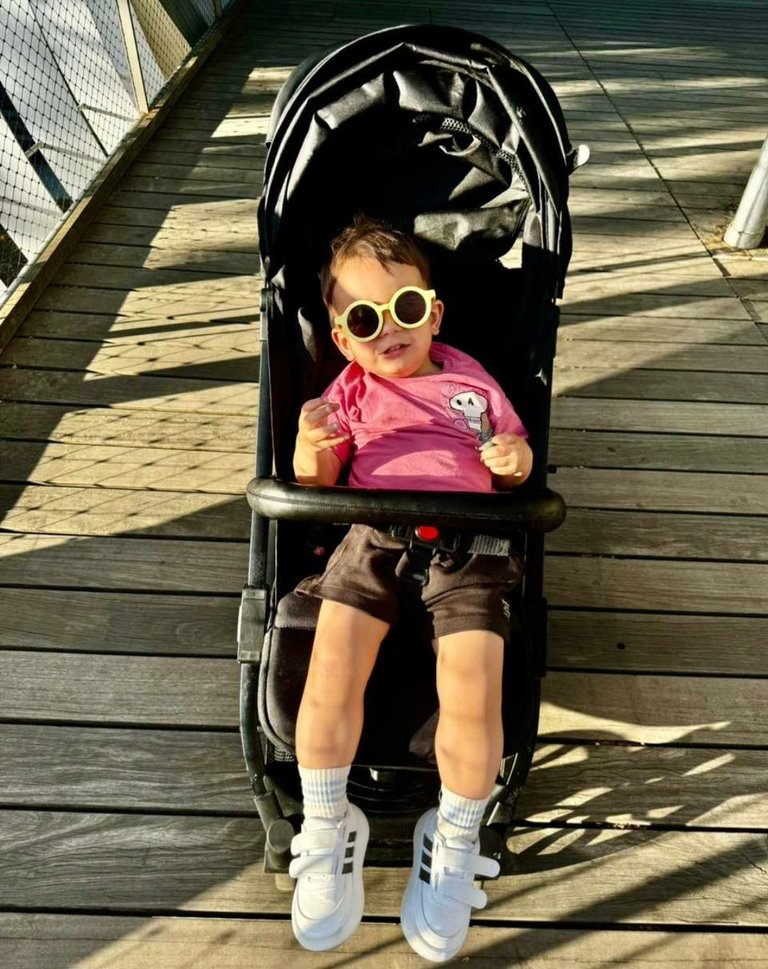Como madre de un niño pequeño de dos años, he adoptado los principios de la crianza respetuosa y he experimentado sus numerosos beneficios de primera mano. Luca es un niño amoroso y feliz, si como todo niño a veces no hace caso, pero son etapas que poco a poco he visto que con su desarrollo ha ido cambiado.

Al establecer límites claros y explicados, he podido guiar a mi hijo, sin recurrir al castigo o las amenazas. Escuchar activamente a mi hijo y también a mi sobrina que vive actualmente con nosotros es una forma de comunicarnos y de que exista confianza entre nosotros.
He encontrado que mostrando empatía, puedo entender mejor las frustraciones y los desafíos de mi hijo y tambien de mi sobrina, incluso cuando su comportamiento me resulta frustrante. Evitando las etiquetas y las críticas, hemos construido una relación basada en el respeto mutuo.
La crianza respetuosa es un enfoque de crianza que prioriza el trato digno y respetuoso hacia los niños, independientemente de su edad o comportamiento. Hoy en día, aún existen muchas personas que piensan que los gritos y hasta incurrir a la violencia genera un mejor comportamiento en nuestros hijos.
A pesar de que fui educada un poco " a la antigua" agradecida siempre de lonque mis padres forjaron en mi, también reconozco que mis sentimientos fueron reprimidos, y mi madre solo repetí un patrón desde la crianza que tuvo, además no tuvo en acceso que tenemos actualmente a la educación y a la formación de nuevas formas de educar a nuestros hijos.
Cómo Lograr la Crianza Respetuosa
Mi experiencia "ojo"
Establecer Límites Claros y Razonables: Los niños necesitan límites para sentirse seguros y guiados, pero estos límites deben establecerse con respeto y explicados de manera clara y comprensible. Evite usar castigos físicos o verbales, ya que socavan la confianza y la autoestima.
Escuchar Activamente: Escuchar atentamente a nuestros hijos, sin interrumpir o juzgar. Demostrar que se valora sus pensamientos y sentimientos, incluso si no estamos de acuerdo con ellos. Escuchar activamente crea una atmósfera de confianza y respeto.

Mostrar Empatía: Tratar de entender el mundo desde la perspectiva del niño. Considerar sus sentimientos, necesidades y motivaciones, incluso cuando su comportamiento nos resulte difícil de manejar. La empatía ayuda a que los niños se sientan comprendidos y apoyados.
Evitar las Etiquetas y las Críticas: En lugar de etiquetar a los niños como "malos" o "problemáticos" "flojos" "brutos", céntrarse en sus comportamientos específicos. Evitar las críticas generales que golpean el carácter del niño. Céntrarse en proporcionar comentarios constructivos y orientados a la mejora no a la destrucción de su autoestima.
Dar Opciones y Control: Siempre que sea posible, se debe dar los niños opciones y un cierto grado de control sobre sus vidas. Esto les ayuda a desarrollar la autonomía y el sentido de responsabilidad. Siempre cuidado de su bienestar físico y mental
Si tu hijo no tiene la confianza de contarte las cosas es que no es que tenga miedo de contártelo, tiene miedo de que lo que le digas o lo que le hagas le haga daño emocional o físico.

Es por eso que considero que desde el amor y el respeto las relaciones son más sanas. Espero sus comentarios y forma de ver la vida.
Saludos. Con mucho amor para todos ustedes! Espero les ayude.
Raising Children from Respect: A Path to Understanding.
As the mother of a two-year-old toddler, I have adopted the principles of respectful parenting and have experienced its many benefits firsthand. Luca is a loving and happy child, yes like all children he sometimes ignores, but these are stages that I have gradually seen change as he has developed.

By establishing clear and explained limits, I have been able to guide my son, without resorting to punishment or threats. Actively listening to my son and also to my niece who currently lives with us is a way for us to communicate and for trust to exist between us.
I have found that by showing empathy, I can better understand my son's and niece's frustrations and challenges, even when their behavior is frustrating to me. By avoiding labels and criticism, we have built a relationship based on mutual respect.
***Respectful parenting is an approach to parenting that prioritizes treating children with dignity and respect, regardless of their age or behavior. Today, there are still many people who think that yelling, screaming, and even violence will lead to better behavior in our children.
Although I was educated a little "old-fashioned" always grateful for what my parents forged in me, I also recognize that my feelings were repressed, and my mother only repeated a pattern from the upbringing she had, also she did not have the access we have today to education and the formation of new ways to educate our children.
How to Achieve Respectful Parenting.
My "eye" experience
Set Clear and Reasonable Limits: Children need limits to feel safe and guided, but these limits should be set with respect and explained in a clear and understandable way. Avoid using physical or verbal punishment, as it undermines confidence and self-esteem.
Listen Actively: Listen attentively to our children, without interrupting or judging. Show that you value their thoughts and feelings, even if you disagree with them. Active listening creates an atmosphere of trust and respect.

Show Empathy: Try to understand the world from the child's perspective. Consider their feelings, needs, and motivations, even when their behavior is difficult for us to handle. Empathy helps children feel understood and supported.
Avoid Labels and Criticism: Instead of labeling children as "bad" or "troublemakers" "lazy" "brutes," focus on their specific behaviors. Avoid general criticisms that strike at the child's character. Focus on providing constructive, improvement-oriented feedback, not destruction of self-esteem.
Give Choices and Control: Whenever possible, children should be given choices and a degree of control over their lives. This helps them develop autonomy and a sense of responsibility. Always care for their physical and mental well-being
If your child doesn't have the confidence to tell you things, it's not that he's afraid to tell you, he's afraid that what you say or do will hurt him emotionally or physically.

That is why I consider that from love and respect relationships are healthier. I look forward to your comments and way of seeing life.
Greetings. With much love to all of you! I hope it helps you.
- Las imágenes me pertenecen
- Traductor: Deelp traslator
- Edicion: Canva
- Images belong to me
- Translator: Deepl Traslator
- Editing: Canva
¡Que bueno que estés aplicando la crianza respetuosa!
Se que no debe ser fácil romper con los patrones de la antigua pero veo que lo estás llevando muy bien, saludos
Muchas gracias amiga. Bendiciones!
Pues, ¡qué buena experiencia "ojo"!
Tenía tiempo que no leía sugerencias tan claras y que considero tan correctas.
No sabes lo que puede ayudar esta reflexión.
Te envío mi agradecimiento y mis bendiciones para tí y tu familia. Muy buen post @mariajose18
Jajaja ese "ojo" no puede faltar. Mi mamá lo hacía en notas muchas veces para indicarnos algo. Que lo uso siempre. Jajaja
Muchas gracias por lo que me has di hoy, amén. Amén y amén.
También te mando un millón de gracias y millones de bendiciones iones en tu vida. Un abrazo desde la distancia amigo. Feliz noche.
Siempre seras un buen ejemplo de mamá. Yo te admiro y te quiero. ♥️👌🙏
The fact that we were raised in the old fashioned way yet still are grateful for the values this method instilled in us leads me to believe that it was not necessarily wrong in all its aspects. It is my belief that as adults we need to try and control our emotions/frustrations when dealing with children, however, do they also need to see how certain behaviour from themselves can cause those emotions and reactions in others? They may not believe that they do unless they can see that in others. This was why I always apologised to my children if my frustration came through on occasion, but didn't punish myself for the lapse. We are all human after all.